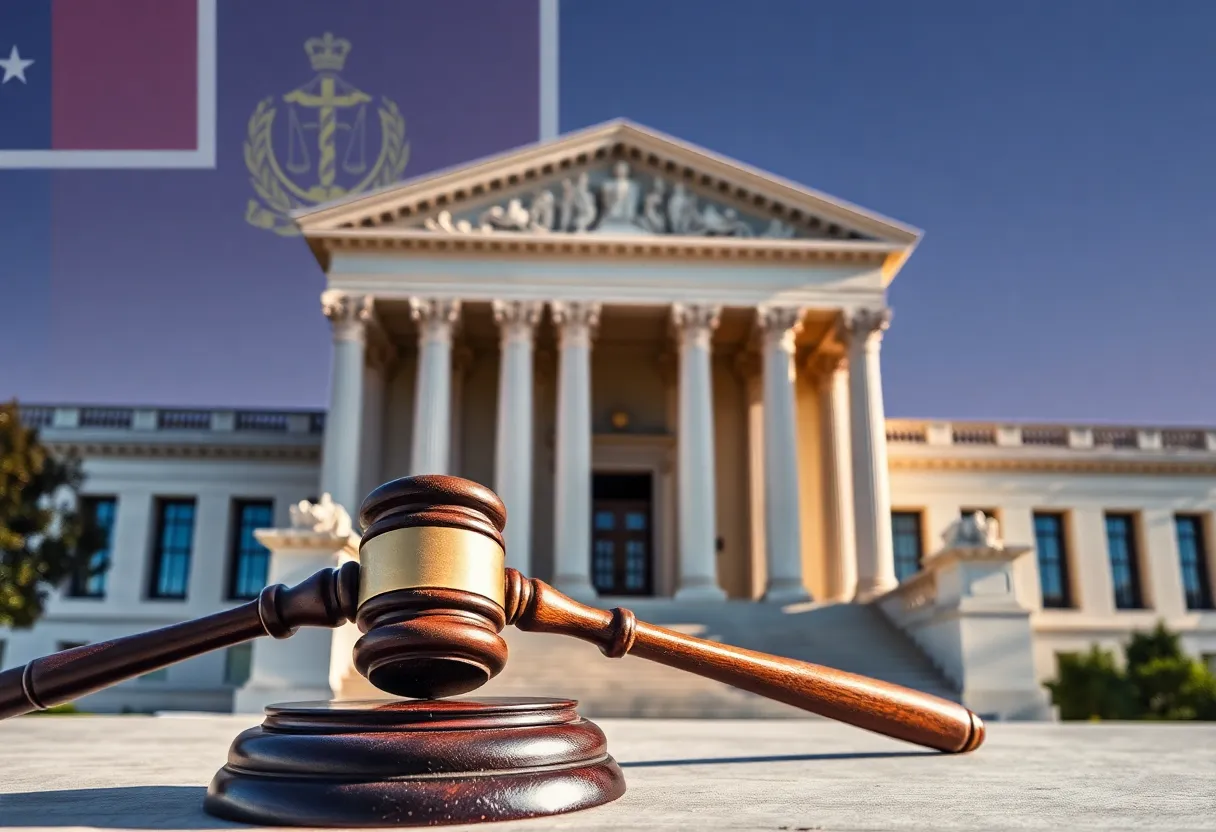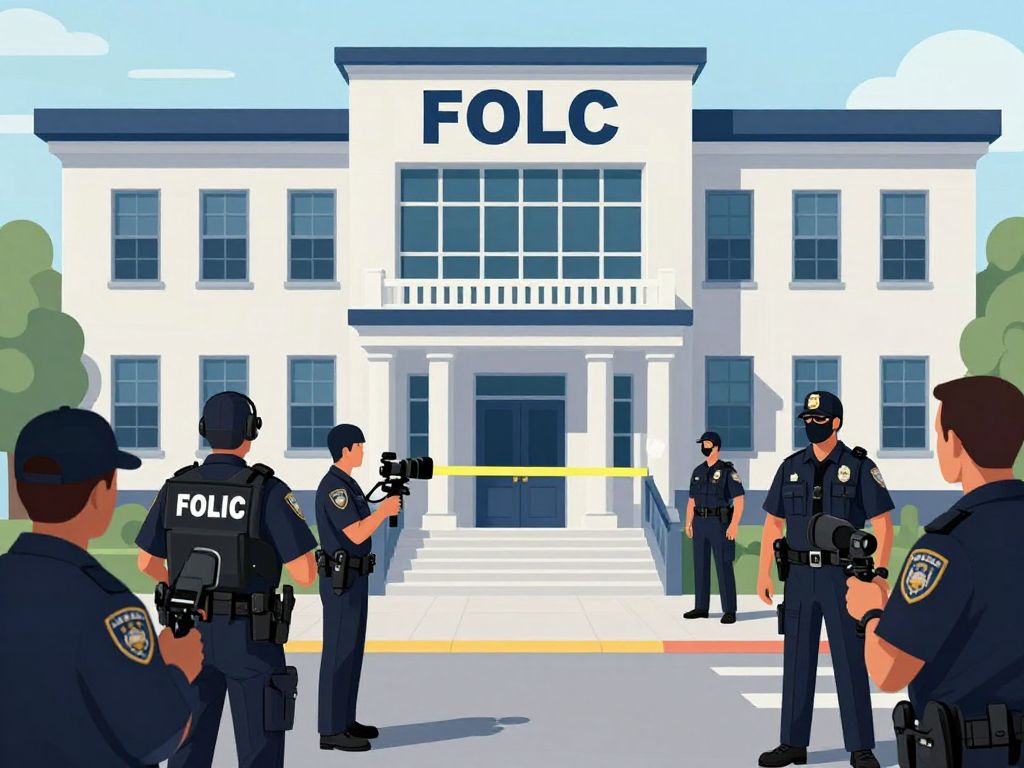News Summary
The Georgia Supreme Court has unanimously struck down four of the seven election rules approved by the Republican-led State Election Board. This ruling limits the Board’s authority and reinforces adherence to established election laws ahead of the upcoming presidential election. The invalidated rules included stringent demands like hand-counting ballots and requiring identification for absentee ballot delivery. While one rule on video surveillance was upheld, this decision is seen as a pivotal change in Georgia’s electoral landscape and raises questions on election integrity moving forward.
Atlanta, Georgia – The Supreme Court of Georgia has unanimously struck down four of the seven election rules that were recently approved by the Republican-led State Election Board, marking a significant shift in the state’s election protocols ahead of the 2024 general election.
The ruling effectively limits the rulemaking authority of the State Election Board and other executive branch agencies in Georgia, ensuring stricter adherence to existing election laws. The decision was made public on Tuesday and has implications for the upcoming presidential election, as these rules were initially adopted in August and September of 2024.
The State Election Board is composed of three Republican members, one Democrat, and a nonpartisan chair, and previously gained attention for its controversial proposals. The invalidated rules included stringent requirements, such as mandating that ballots be hand-counted after the polls closed, which was at odds with state law requiring immediate tabulation. Another rule imposed a requirement for individuals delivering absentee ballots in person to provide a signature and photo identification.
The court also overturned rules that compelled county election board members to perform a “reasonable inquiry” before certifying election results and granted broad access to election-related documents for these members. These changes were viewed by critics as potential avenues for confusion, potentially benefiting certain political candidates, particularly former President Donald Trump, who lauded the rules during a rally.
While the court upheld one rule regarding the requirement for video surveillance of ballot drop boxes after polls close during early voting, it chose to send two additional contested rules back to a lower trial court for further evaluation. This decision underlines the court’s commitment to maintain a clear structure surrounding election oversight.
The legal challenges against the rules stemmed from a lawsuit initiated by Eternal Vigilance Action, Inc., along with individual plaintiffs Scot Turner and James Hall. The suit contended that the newly adopted rules contradicted the established state Election Code. The Supreme Court ruling clarified that while the organizational plaintiffs lacked legal standing to challenge the rules, the individual plaintiffs had a justifiable claim.
Chief Justice Nels S.D. Peterson emphasized the importance of maintaining the nondelegation doctrine, highlighting that legislative powers should remain solely under the legislature’s purview and not be delegated to administrative agencies. This ruling effectively overturned a 1990 precedent which had previously broadened the rulemaking capabilities of state agencies.
In scrutinizing the specific rules, the court concluded that the requirement for county election board members to conduct a “reasonable inquiry” conflicted with existing laws that mandate the prompt certification of election results. Additionally, it noted that the hand-counting rule contradicted state laws which necessitate immediate result tabulation.
The developments from this ruling and the invalidation of these controversial election rules significantly alter the trajectory of Georgia’s electoral practices heading into a critical election period. Observers of the political landscape in Georgia are keenly watching how these changes will influence voting procedures and election integrity.
The ramifications of this decision will likely extend beyond the immediate legal sphere, impacting future elections as well as the broader discussion on election laws within the state. As the state prepares for the upcoming presidential election, lawmakers and election officials will need to adapt their practices reflecting this new judicial landscape, ensuring compliance with the Supreme Court’s directives.
This verdict symbolizes a pivotal moment in Georgia’s election history, reinforcing the necessity of adhering to established laws while navigating complex political dynamics.
Deeper Dive: News & Info About This Topic
HERE Resources
Atlanta to Host MLB Draft and All-Star Week Events
Unique Birthday Celebrations in Atlanta
Exploring Atlanta’s Biscuit-Centric Restaurants
Georgia Governor Announces $1 Billion Tax Refunds Amid Controversies
Gubernatorial Race Heats Up in Georgia with Five Candidates
Derrick Jackson Launches Campaign for Georgia Governor
Atlanta Welcomes Unique Dining Experiences for Father’s Day
Georgia State Representative Derrick Jackson Announces Gubernatorial Bid
Georgia Implements New Laws for Social Reform and Justice
Significant Legislative Changes Coming to Georgia
Additional Resources
- Rough Draft Atlanta: Georgia Supreme Court Election Rules Block
- Fox 5 Atlanta: Georgia Supreme Court Partially Invalidates State Election Rules
- The Atlanta Voice: Georgia Supreme Court Rejects Election Rule Changes
- Google Search: Georgia Supreme Court election rules
- Encyclopedia Britannica: Election

Author: STAFF HERE ATLANTA WRITER
The ATLANTA STAFF WRITER represents the experienced team at HEREAtlanta.com, your go-to source for actionable local news and information in Atlanta, Fulton County, and beyond. Specializing in "news you can use," we cover essential topics like product reviews for personal and business needs, local business directories, politics, real estate trends, neighborhood insights, and state news affecting the area—with deep expertise drawn from years of dedicated reporting and strong community input, including local press releases and business updates. We deliver top reporting on high-value events such as vibrant music festivals like Shaky Knees and Music Midtown, major cultural celebrations including Dragon Con and the Atlanta Film Festival, and iconic sporting events like the Peachtree Road Race. Our coverage extends to key organizations like the Metro Atlanta Chamber of Commerce and the Atlanta Convention & Visitors Bureau, plus leading businesses in logistics, beverages, and retail that power the local economy such as Delta Air Lines, The Coca-Cola Company, and The Home Depot. As part of the broader HERE network, including HEREAugusta.com and HERESavannah.com, we provide comprehensive, credible insights into Georgia's dynamic landscape.





